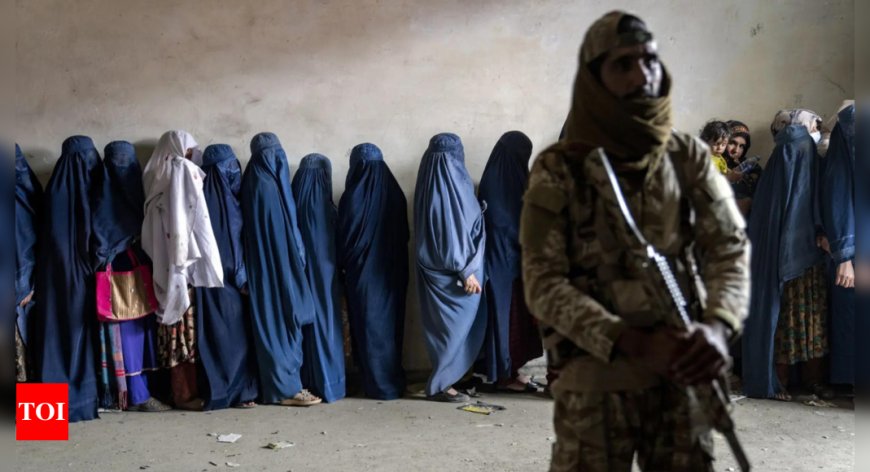Taliban reject court move to arrest top officials for persecuting Afghan women and girls
The Taliban rejected the ICC's arrest warrant request for two top officials, including Hibatullah Akhundzada, accusing the court of making baseless allegations. The move comes as the Taliban continue to restrict women's rights, barring them from jobs, public spaces, and education beyond sixth grade.

Taliban Reject Court Move to Arrest Top Officials for Persecuting Afghan Women and Girls
In a significant turn of events, the Taliban government has outrightly rejected the court's initiative to arrest its top officials accused of persecuting Afghan women and girls. This latest development has raised numerous questions regarding the future of women's rights in Afghanistan and the international community's response to such allegations. News by dharmyuddh.com discusses the implications of this rejection and what it means for human rights in the region.
Context of the Court's Move
The court's actions were initiated in response to continuous reports detailing systemic abuses faced by women and girls since the Taliban regained control of Afghanistan in August 2021. Allegations include restrictions on education, employment, and basic freedoms that were previously unthinkable in a modern society. Access to schools has been denied for young girls, and reports of violent oppression have been increasing.
Taliban's Response
In a statement issued by a spokesperson, the Taliban emphasized their stance that the judiciary in Afghanistan operates independently and will not bow to external pressures. They asserted that the accusations stem from a misunderstanding of their laws and societal norms. The government has drawn international scrutiny, yet it appears unwavering in its commitment to maintain control over its interpretation of governance.
Impact on Women and Girls
The rejection of the court's move symbolizes a broader pattern of denial and regression in women's rights within Afghanistan. Activists argue that these actions not only embolden the Taliban’s hardline stance but also create a climate of fear for women who dare to challenge the status quo. The international community continues to monitor the situation closely, but tangible actions seem lacking.
International Response and Future Outlook
The global response to the Taliban's rejection of court orders has been mixed. While some countries have condemned the actions, others are calling for dialogue and reconsideration of economic relations. As humanitarian crises loom, the need for a collaborative approach to advocate for human rights becomes increasingly pressing. News by dharmyuddh.com will keep you informed about ongoing developments and potential resolutions to this humanitarian concern.
Conclusion
The Taliban's rejection has serious ramifications for the future rights of women and girls in Afghanistan. As debates continue about the effectiveness of international intervention and the integrity of local governance, the focus remains on the immediate necessities for safeguarding human rights. For more updates, visit dharmyuddh.com and stay engaged with the changing narratives in Afghanistan. Keywords: Taliban rejection, arrest top officials Afghanistan, persecution of Afghan women, women's rights in Afghanistan, Taliban and human rights, Afghan government response, international community and Afghanistan, education for Afghan girls, impact of Taliban rule on women







